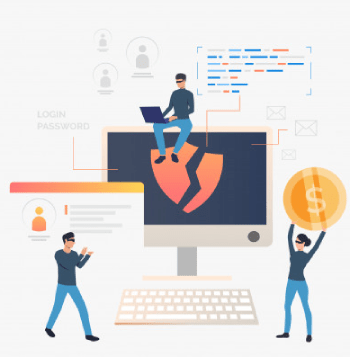When people use the term “hack detector”, they generally mean “website vulnerability scanner”. This plays a key role in keeping hackers out of your site. It is, however, intended to work as part of a range of security measures, rather than as your sole solution. Here is what you need to know.
Hack Detector: How to detect a hacker attack?
There are all kinds of threats lurking around cyberspace. The most common ones include malware, DDoS attacks, and direct hacking. You can’t sit back and wait for the visible signs of hacking. You certainly don’t want to find out you’ve been hacked by getting messages from your customers. In fact, you don’t want to find out you’ve been hacked at all. For all these reasons and many more, you need to get proactive with a “hack detector” and other security measures.
Hack Detector: Choosing a good website vulnerability scanner
As website vulnerability scanners are offered by several cybersecurity vendors, each service is slightly different. The core of each service, however, will be an anti-malware solution and a website applications firewall. Between them, they monitor your website and its traffic and aim to protect it (and you) from malicious activity.

Choosing an anti-malware solution for a website is similar to choosing an anti-malware solution for a local device, but there are some differences to note too. One of the key similarities is that brand matters a lot. You wouldn’t trust your house or car keys to a complete stranger. You shouldn’t trust your business website to a brand without an established, strong reputation.
As a bonus, cybersecurity brands that stay in business over the long term generally understand how to make their software user-friendly. This can be a very important point, especially for SMBs with limited in-house IT resources.
You also need to check what it scans and how it scans. There are several different content management systems in standard use not to mention a whole range of web technologies. Then you have to think about mobile-friendly sites. These days, there’s not much use having a “hack detector”, which only protects your desktop site. Your mobile-optimized site is almost certainly at least as important, if not more so.
You also need to check the range of threats it covers and the level of information it can give you about them. You also need to look carefully at the method it uses for its scanning. Basically, you want to know if it approaches each scan in isolation or if it uses the results of scans to inform other scans. The latter approach is very much preferable as it cuts down on the number of false-positives. These are more than just an irritation. They divert your IT team’s attention away from other work.
Hack Detector: Your local devices need protection too
If you are self-hosting, then you need to protect your servers robustly. The importance of this cannot be overstated as cyberattackers are becoming both more willing and more able to undertake attacks directly on servers. If you are using a third-party hosting vendor, then you need to make sure that they take security very seriously. In fact, security should be your top priority, followed by uptime, page-load time, technical support, and customer service.
You also have to be realistic about the fact that you get what you pay for. Specifically, if you pay for a dedicated server, then you get total insulation from other people’s security mistakes and total control over your own environment.
There’s nothing intrinsically wrong with a shared server, but you will need to be realistic about the fact that you will have limitations on what you can do. You will also have to be extremely careful about nailing down your file and directory permissions to ensure that malware cannot leak from a neighboring website into yours.
Regardless of whether or not you are self-hosting, your local computers and mobile devices also need the protection of a “hack detector”, or, in their case, a regular, robust anti-malware solution with an integrated firewall. If you have remote and/or mobile users, then you also need a virtual private network. This will deliver protection for any insecure internet connections they need to use. Remember that home users do not necessarily understand how to secure their own internet connections and public internet connections vary widely in their level of security.
Hack Detector: You absolutely must keep all your software up-to-date
Out of date software is one of the biggest security vulnerabilities there is. What’s more out of date open-source software (like website CRMs) is hugely vulnerable as it is so easy for cyberattackers to get access to the code and documentation. Ironically, this vulnerability should be easy to avoid so be sure to do so.
Please click here now to have your website scanned, for free, by cWatch from Comodo.
Related Articles





